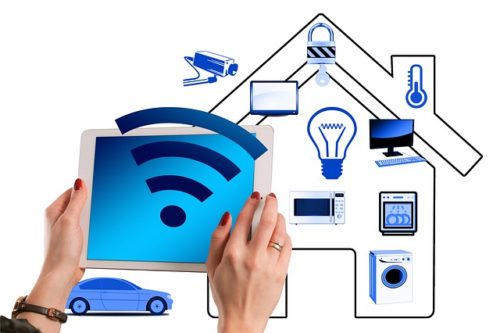According to the market research company Gartner, the global smart home revolution will see the adoption of 20.8 billion connected devices by 2020. Consider that we live in an age of cyber-insecurity, and it may make you wonder whether smart homes are secure investments.
What is a Smart Home?
The dictionary definition of a smart home is described as: A home equipped with lighting, heating, and electronic devices that can be controlled remotely by smartphone or computer. Many of us are familiar with this definition. It is not that the home itself is smart (though it may one day be), it is that different components of the home are smart.
We have all heard about the potential future where our smart fridge can order expired food or beverages for us or order more of an item before it runs out. While there may not yet have been widespread adoption on the part of home builders and buyers, the industry continues to move in this direction.
But is this necessarily a good thing? In reality, smart appliances have little protection from hackers. In 2014, hackers used a widespread “botnet” to take over 100,000 “connected” devices, from routers to TVs and even refrigerators. Hacks on security cameras, routers and other networking equipment is quite widespread.
A Dangerous Fridge?
You may wonder, “What possible harm can my fridge do?” Yet, when a fridge’s network is added to a botnet to launch a denial of service attack, that fridge is one component of a powerful weapon. Connected devices run without appropriate security measures present unacceptable risks.
There are even open-source distributed software downloads that hackers can access. The software scans the internet actively looking for unprotected Internet of Things (IoT) devices. The software’s efficacy lies in the fact that few people change usernames and passwords for smart home camera systems.
The software can find out the default username of the smart camera and run tests against thousands of them. Break-ins are cataloged and accessed for future denial of service attacks. Botnet software runs on almost any computer or connected device without human intervention.
What Security Consultants Do
To figure out how to live in a secure smart home, consider what the pros do. Security-minded individuals are in a constant battle to ensure the devices they enable in their homes do not represent a security risk. And if you have to ban an app or device outright, do not hesitate to do it.
Have you done your research to determine which connected devices are secure? In August, researchers uncovered a security flaw in a smart plug that allowed hackers to break into a home’s entire WiFi network just by hacking into the smart plug.
It wouldn’t hurt to even dig into underlying code on products you buy. There is no reason to fear the idea of a smart home. Technological change is here and you may want to tap into newer, better ways of living. But you need not fear someone will hack into your home. Pay special care and you wont have to.

